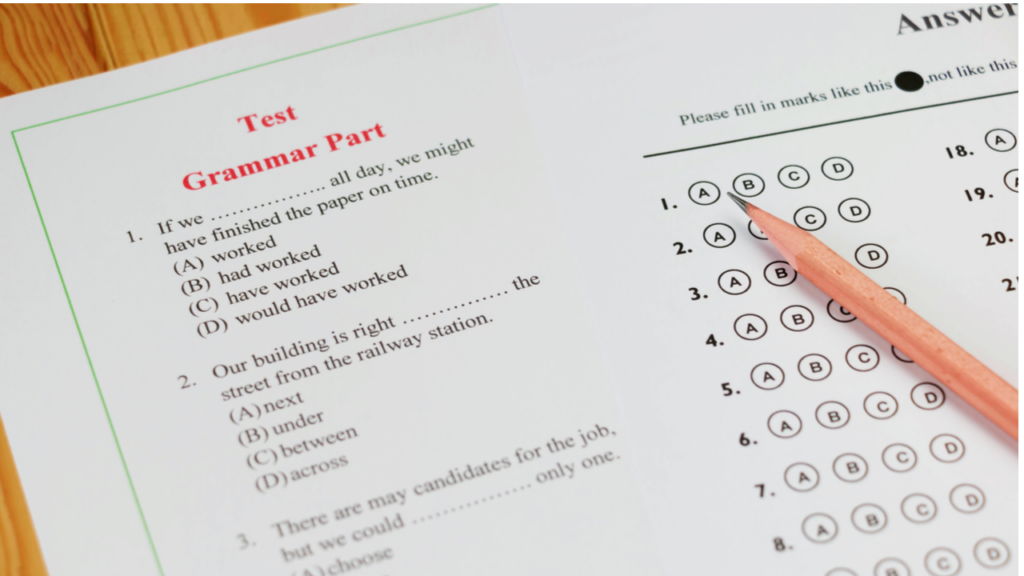For countless Indian students and professionals, a high score in the IELTS exam is the first step towards achieving their global ambitions. While all sections of the test require dedicated preparation, the IELTS Academic Writing Task 1 presents a unique challenge: describing visual information accurately and concisely within a tight time frame. This comprehensive guide for 2025 will break down everything you need to know to master this task, from understanding the core requirements to crafting a Band 9-worthy response.
Understanding the IELTS Writing Task 1: Core Requirements for 2025
IELTS Academic Writing Task 1 requires you to write a report of at least 150 words describing information presented in a visual format. You will be presented with a graph, chart, table, process diagram, or a map, and your job is to summarise the main features and make comparisons where relevant.
Key Requirements: Summarise, Describe, Compare
The examiners are not looking for your opinion or any information that isn’t present in the visual. Your entire focus should be on objectively reporting the key data. This involves identifying the most significant trends, patterns, and points of comparison.

Excel in IELTS with India’s Top Online Coaching
Leap has helped more than 1 Lakh students achieve 7+ IELTS band.
IELTS Writing Task 1 Time Management: The 20-Minute Strategy
You should allocate approximately 20 minutes to this task, as Task 2 carries more weight in your final Writing score. Effective time management is non-negotiable. A good strategy is to spend the first 2-3 minutes analysing the visual and planning your response, 15 minutes writing, and the final 2-3 minutes proofreading for any errors.

Excel in IELTS with India’s Top Online Coaching
Leap has helped more than 1 Lakh students achieve 7+ IELTS band.
IELTS Writing Task 1 Scoring: Word Count and Weightage (2025)
You must write a minimum of 150 words. Failing to meet this requirement will result in a penalty. While there is no upper limit, aiming for a response between 160 and 180 words is ideal to ensure you have provided sufficient detail without rushing. Task 1 accounts for approximately one-third of your total IELTS Writing score.
IELTS Writing Task 1: Academic vs. General Training Differences
It is vital to know that the Writing Task 1 for the Academic and General Training modules are different. The Academic module, which is the focus of this guide, involves describing visual data. The General Training module requires you to write a letter in response to a given situation.
Master the 6 Types of IELTS Writing Task 1 Questions
To score well, you must be familiar with the different types of visuals you might encounter. Each requires a slightly different approach and specific vocabulary.
1. Line Graphs: Describing Trends and Changes Line graphs illustrate changes in data over a period of time. Your report should focus on describing the trends, such as increases, decreases, fluctuations, or periods of stability.
2. Bar Charts: Comparing and Contrasting Data Bar charts are used to compare different categories of data. Your task is to compare and contrast the values for these categories, highlighting the highest, lowest, and any significant differences.
3. Pie Charts: Explaining Proportions and Percentages Pie charts show the proportion of different components within a whole, almost always represented as percentages. Your description should focus on comparing these proportions, identifying the largest and smallest segments.
4. Tables: Presenting and Highlighting Key Figures Tables present data in rows and columns. While they can contain a lot of information, your job is to select and report the key figures and make relevant comparisons, rather than describing every single number.
5. Process Diagrams: Explaining How Something Works A process diagram illustrates a series of stages or steps in a particular order, such as a manufacturing process or a natural life cycle. Your report should describe these stages sequentially, using appropriate sequencing language.
6. Maps: Describing Changes in a Place Over Time You may be presented with two or more maps of the same area at different points in time. Your task is to describe the changes that have occurred, such as the construction of new buildings, removal of facilities, or alterations in infrastructure.
The Four-Step Blueprint to a Band 9 Answer
A structured approach is key to producing a clear and coherent response under exam conditions.
Step 1: Analyse the Question and Visual (First 2-3 Minutes) Before you write a single word, carefully examine the visual. Identify the main topic, the units of measurement (e.g., percentages, thousands, tonnes), and the time period. Look for the most obvious trends or comparisons—these will form the main points of your report.
Step 2: Write a Powerful Introduction (Paraphrase the Question) Your first paragraph should be a concise introduction of one or two sentences. The most effective way to do this is by paraphrasing the question prompt. This means rewriting the description of the visual in your own words, using synonyms where possible. This immediately shows the examiner that you understand the task.
Step 3: Develop Your Body Paragraphs (The Detail) Your body paragraphs are where you present the specific details. Start with an Overview paragraph that summarises the main trends or features you identified in your analysis. This is arguably the most important paragraph of your report. Following the overview, dedicate one or two paragraphs to describing the specific data points, grouping information logically. For example, in a line graph with two rising lines and one falling line, you could describe the rising trends in one paragraph and the falling trend in another.
Step 4: No Conclusion Needed, Just a Clear Overview Unlike Task 2, a concluding paragraph that summarises your points is not required in Task 1. Your overview paragraph has already served this purpose. Ending your report after presenting the specific details is perfectly acceptable.
Essential Vocabulary for IELTS Writing Task 1 (2025 Update)
Using a range of appropriate vocabulary is crucial for achieving a high score in Lexical Resource, which accounts for 25% of your marks.
- Vocabulary for Trends (Verbs and Nouns of Change):
- Upward: increase, rise, grow, rocketed, surge (verbs); an increase, a rise, a growth, a surge (nouns).
- Downward: decrease, fall, drop, decline, plummet (verbs); a decrease, a fall, a drop, a decline (nouns).
- Adverbs for speed: sharply, rapidly, quickly, steeply, gradually, slowly, steadily.
- Language of Comparison and Contrast:
- Similarly, Likewise, By contrast, In comparison, while, whereas.
- Higher/lower than, more/less than, the highest, the lowest.
- Vocabulary for Approximations:
- Approximately, nearly, roughly, around, just under, well over.
- Sequencing Language for Processes and Maps:
- Firstly, Secondly, Next, Then, Following this, Subsequently, Finally.
- The process begins with…, The next stage is…, The process culminates in…
IELTS Writing Task 1 Samples: Band 9 Model Answers (2025)
Sample 1: Line Graph Analysis
(A line graph shows the percentage of the population in India, China, and the USA who used the internet between 2010 and 2025.)
Model Answer:
The line graph illustrates the proportion of people in India, China, and the USA who had access to the internet over a 15-year period from 2010 to 2025.
Overall, the percentage of internet users increased in all three countries. However, the USA maintained the highest proportion of users throughout the period, while India experienced the most dramatic growth.
In 2010, the USA began with the highest percentage of internet users at approximately 75%. This figure saw a steady increase, reaching around 90% by 2025. In contrast, China’s internet usage started at about 40% and grew consistently to stand at roughly 75% in 2025, the same level as the USA 15 years prior.
India started with the lowest figure, with only 10% of its population using the internet in 2010. This number witnessed a significant surge, particularly after 2015, rocketing to approximately 60% by 2025. Despite this rapid increase, India’s proportion of internet users remained the lowest of the three nations at the end of the period.
Common Mistakes Made by Indian Test-Takers and How to Avoid Them
- Giving an Opinion: Task 1 is a report, not an essay. Never state why you think a trend occurred or what you think about it.
- Describing Every Single Detail: You must be selective. Focus on the most important information the highest and lowest points, the main trends, and key comparisons.
- Incorrectly Paraphrasing the Introduction: Do not copy the question. Use synonyms and change the sentence structure to demonstrate your vocabulary and grammar range.
- Repetitive Vocabulary and Sentence Structure: Use a variety of sentence structures and vocabulary for trends and comparisons to achieve a higher band score.
Frequently Asked Questions (FAQs)
How is Writing Task 1 marked?
It is assessed on four criteria, each worth 25% of your total mark: Task Achievement (did you answer the question properly?), Coherence and Cohesion (is your answer well-structured and easy to follow?), Lexical Resource (did you use a good range of vocabulary?), and Grammatical Range and Accuracy.
Can I use bullet points in my answer?
No. You must write your response in fully connected sentences and paragraphs. Using bullet points will lower your score.
What happens if I write less than 150 words?
You will be penalised for not meeting the word count requirement, which will negatively impact your Task Achievement score.
Is my handwriting important in the paper-based test?
Yes. If the examiner cannot read your handwriting, they cannot mark your work. Ensure your writing is clear and legible.
Which is easier, computer-delivered or paper-based Writing Task 1?
This depends on your personal preference. If you are a fast typist and comfortable with editing on a screen, the computer-delivered test might be better for you. If you prefer to plan and write by hand, the paper-based test is a better choice. The task itself remains the same for both formats.
















Have Questions? Get Guidance to reach your Dream University
Connect with India's finest counsellors and biggest study abroad community.
Get Guidance